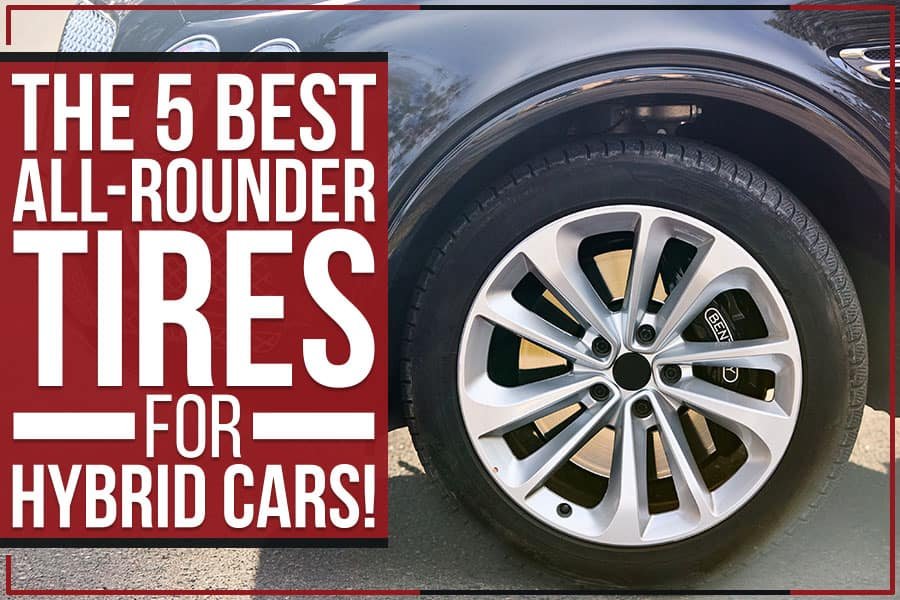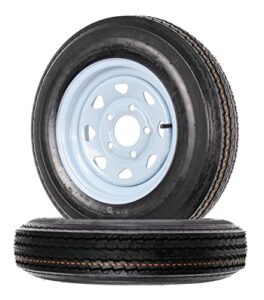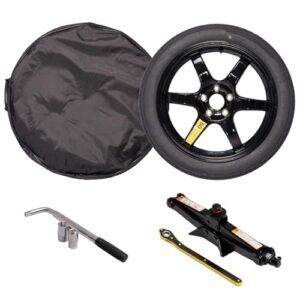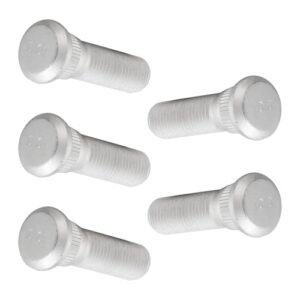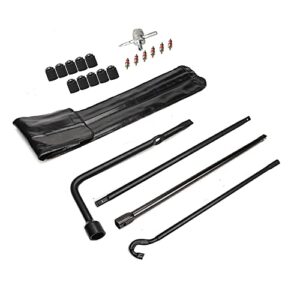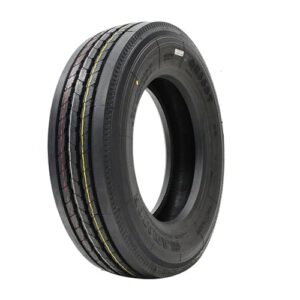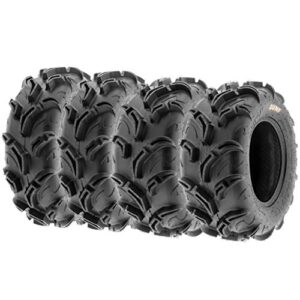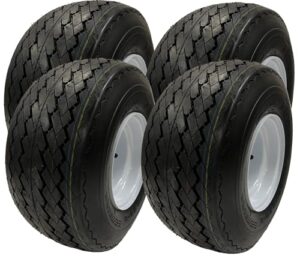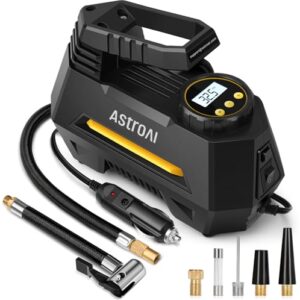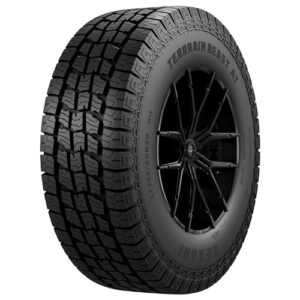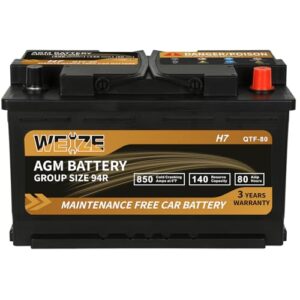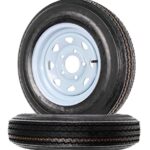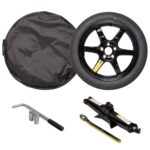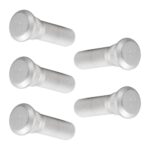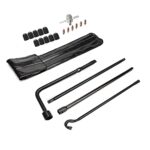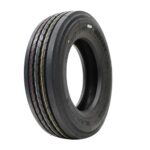To choose tires for hybrid vehicles, consider fuel efficiency and tire longevity. Ensure they match the vehicle’s specifications.
Hybrid vehicles offer a unique blend of fuel efficiency and performance. Selecting the right tires increases these benefits. Proper tires improve mileage, safety, and overall driving experience. Focus on low rolling resistance tires for better fuel economy. Check the tire’s load and speed ratings to match your hybrid’s requirements.
Consider the climate and road conditions you frequently drive in. All-season tires are versatile, while winter tires are essential for snowy conditions. Regularly inspect and maintain your tires for optimal performance. Choosing the right tires ensures your hybrid vehicle runs efficiently and safely.

Introduction To Hybrid Vehicle Tires
Choosing the right tires for your hybrid vehicle is crucial. Hybrid vehicles are different from conventional cars. They need special tires to perform well and save fuel. In this section, we will explore why the right tires are important. We will also look at how hybrid vehicle tires differ from regular ones.
Importance Of The Right Tires
Using the right tires for your hybrid vehicle offers several benefits:
- Fuel Efficiency: Special tires help save fuel.
- Safety: Proper tires ensure better grip and braking.
- Longevity: Correct tires last longer and save money.
Choosing the right tires can reduce tire wear. This means you won’t have to replace them often. It also helps in maintaining the car’s overall health.
Differences From Conventional Tires
Hybrid vehicle tires differ from conventional tires in several ways:
| Feature | Hybrid Vehicle Tires | Conventional Tires |
|---|---|---|
| Rolling Resistance | Low rolling resistance for better fuel efficiency | Higher rolling resistance |
| Weight | Lighter to reduce overall vehicle weight | Heavier |
| Material | Special rubber compounds | Standard rubber |
Low rolling resistance is key for hybrid tires. It helps in reducing the energy needed to move the car. This saves fuel and boosts efficiency.
Special rubber compounds are used for these tires. They are designed to last longer and perform better. This ensures that your hybrid vehicle runs smoothly.
Understanding Tire Specifications
Choosing the right tires for hybrid vehicles is crucial. Understanding tire specifications ensures optimal performance and safety. This section will guide you through key tire specifications to consider.
Tire Size And Fit
The size and fit of your tires are essential for your hybrid vehicle. Tire size is usually indicated on the tire’s sidewall. It appears as a series of numbers and letters, like P215/60R16.
Here’s a breakdown of what each part means:
- P: Indicates the tire type (Passenger).
- 215: Tire width in millimeters.
- 60: Aspect ratio (height to width percentage).
- R: Radial construction.
- 16: Wheel diameter in inches.
Always check your vehicle’s manual for the recommended tire size. Incorrect sizing can affect fuel efficiency and handling.
Load Index And Speed Rating
The load index and speed rating are also crucial. They indicate the tire’s capacity to carry weight and its speed capability.
| Load Index | Weight Capacity (lbs) |
|---|---|
| 91 | 1,356 |
| 95 | 1,521 |
The speed rating is usually a letter, like H, which means the tire can handle speeds up to 130 mph.
- Load Index: Numerical value indicating weight capacity.
- Speed Rating: Alphabetical value indicating speed capability.
Always choose tires with the correct load index and speed rating for your hybrid vehicle. This ensures both safety and performance.
Types Of Tires For Hybrids
Choosing the right tires for hybrid vehicles is important. Different tires can affect your car’s performance. Here are the main types of tires for hybrids.
All-season Tires
All-season tires are versatile. They perform well in different weather conditions. These tires can handle rain, light snow, and dry roads. They provide a balanced mix of performance and comfort. Most hybrid owners choose all-season tires for their convenience.
Performance Tires
Performance tires are for drivers who want better handling. They offer excellent grip on both wet and dry roads. These tires are perfect for those who enjoy a more spirited driving experience. Keep in mind, they may wear out faster than other types.
Eco-friendly Tires
Eco-friendly tires are designed to reduce fuel consumption. These tires have lower rolling resistance. This means your hybrid will use less energy to move. Eco-friendly tires are also often made from sustainable materials. They are a great choice for environmentally-conscious drivers.
| Type of Tire | Benefits | Considerations |
|---|---|---|
| All-Season Tires | Versatile, good for different weather | May not excel in extreme conditions |
| Performance Tires | Better handling, excellent grip | Faster wear, often pricier |
| Eco-Friendly Tires | Lower fuel consumption, sustainable | May have less grip |
Fuel Efficiency Considerations
Choosing the right tires for your hybrid vehicle is crucial. One important factor is fuel efficiency. Efficient tires help your car use less fuel. This saves money and protects the environment.
Low Rolling Resistance
Low rolling resistance tires are perfect for hybrid vehicles. These tires reduce the energy needed to keep the car moving. This means the engine uses less fuel.
Here are some benefits of low rolling resistance tires:
- Better fuel economy
- Reduced CO2 emissions
- Longer tire lifespan
Look for tires specifically labeled as low rolling resistance. They are designed to increase your car’s efficiency.
Impact On Mpg
The type of tire you choose can impact your car’s MPG (miles per gallon). Low rolling resistance tires often increase MPG. This means you can drive further on a tank of gas.
Consider this comparison:
| Tire Type | Average MPG |
|---|---|
| Standard Tires | 30 MPG |
| Low Rolling Resistance Tires | 35 MPG |
By choosing the right tires, you can boost your car’s fuel efficiency. This not only saves money but also helps the planet.
Weather And Terrain Factors
Choosing the right tires for your hybrid vehicle depends on weather and terrain factors. Different climates and surfaces require specific types of tires. This guide will help you make the best choice for various conditions.
Tires For Wet Conditions
Driving on wet roads can be tricky. You need tires that can handle water and prevent hydroplaning.
- Water evacuation: Look for tires with deep grooves. These help channel water away.
- Rubber compound: Soft rubber provides better grip on wet surfaces.
- Tread pattern: Asymmetrical or directional tread patterns are perfect. They improve traction and stability.
Popular choices include Michelin Premier A/S and Bridgestone Turanza Serenity Plus. These tires offer excellent wet performance and safety.
Tires For Snow And Ice
Winter driving requires special tires. Snow and ice create dangerous conditions. Winter tires are designed to handle these challenges.
- Tread depth: Deep treads provide better grip on snow and ice.
- Siping: Small slits in the tread, known as sipes, improve traction.
- Rubber compound: Winter tires use a special rubber that stays flexible in cold temperatures.
Good options include Bridgestone Blizzak WS80 and Michelin X-Ice Xi3. These tires offer excellent performance in winter conditions.
Here is a quick comparison table of recommended tires:
| Condition | Recommended Tire | Key Features |
|---|---|---|
| Wet | Michelin Premier A/S | Deep grooves, soft rubber, directional tread pattern |
| Wet | Bridgestone Turanza Serenity Plus | Deep grooves, soft rubber, asymmetrical tread pattern |
| Snow and Ice | Bridgestone Blizzak WS80 | Deep treads, sipes, flexible rubber |
| Snow and Ice | Michelin X-Ice Xi3 | Deep treads, sipes, flexible rubber |

Tire Longevity And Maintenance
Choosing the right tires for your hybrid vehicle is crucial. Proper tire care ensures your tires last longer and perform better. This section covers tread life and proper inflation for optimal tire maintenance.
Tread Life
Tread life is how long your tire treads last before wearing out. The tread is the rubber part that touches the road. Good tread life means better grip and safety. Check your tire treads regularly. Use a penny to measure the tread depth. Place the penny in the tread with Lincoln’s head down. If you see all of Lincoln’s head, it’s time to replace the tire.
Rotate your tires every 6,000 to 8,000 miles. This helps even out the wear. Uneven wear can reduce your tread life. Align your tires correctly. Misaligned tires wear out faster. Balance your tires to prevent uneven tread.
Proper Inflation
Proper inflation keeps your tires in good shape. Under-inflated tires wear out faster. Over-inflated tires can burst. Check your tire pressure monthly. Use a reliable tire pressure gauge. Find the recommended pressure in your car’s manual or on the tire’s sidewall. Inflate your tires to this pressure.
Keep an eye on the weather. Cold weather can lower tire pressure. Hot weather can raise it. Check your tire pressure more often in extreme weather. Keep your tire pressure at the right level. This can save you money on gas. Properly inflated tires improve fuel efficiency. They also provide a smoother ride.
| Maintenance Task | Frequency |
|---|---|
| Check Tread Depth | Monthly |
| Rotate Tires | Every 6,000-8,000 miles |
| Check Tire Pressure | Monthly |
| Align Tires | Yearly |
Cost Vs. Performance
Choosing the right tires for your hybrid vehicle involves balancing cost and performance. Understanding how each affects your driving experience is crucial. Whether you seek budget-friendly options or premium choices, this guide will help you make an informed decision.
Budget-friendly Options
For those looking to save money, there are many budget-friendly tire options. These tires provide good performance without breaking the bank.
- All-Season Tires: Suitable for various weather conditions and provide decent performance.
- Low Rolling Resistance Tires: Improve fuel efficiency, saving you money on gas.
- Retreaded Tires: Eco-friendly and cheaper, yet offer reliable performance.
Below is a table comparing some popular budget-friendly tire options:
| Brand | Type | Average Cost | Key Feature |
|---|---|---|---|
| Brand A | All-Season | $80 | Versatile Performance |
| Brand B | Low Rolling Resistance | $90 | Fuel Efficiency |
| Brand C | Retreaded | $50 | Eco-Friendly |
Premium Choices
If you seek top-notch performance, consider premium tire options. These tires offer superior quality and improved features.
- Performance Tires: Provide exceptional handling and control.
- All-Weather Tires: Excellent for extreme weather conditions.
- Run-Flat Tires: Allow you to drive even with a puncture.
Below is a table comparing some popular premium tire options:
| Brand | Type | Average Cost | Key Feature |
|---|---|---|---|
| Brand X | Performance | $150 | Exceptional Handling |
| Brand Y | All-Weather | $140 | Extreme Weather Performance |
| Brand Z | Run-Flat | $160 | Drive with a Puncture |

Expert Recommendations
Choosing the right tires for your hybrid vehicle ensures better performance and fuel efficiency. Experts recommend considering various factors like brand, customer reviews, and specific tire ratings. Let’s dive into these elements to make the best choice.
Top Brands For Hybrids
Some brands excel in producing high-quality tires for hybrid vehicles. Here are the top brands:
- Michelin: Known for fuel-efficient tires.
- Bridgestone: Offers durable and eco-friendly options.
- Goodyear: Provides tires with great traction and longevity.
- Pirelli: Focuses on performance and comfort.
- Continental: Known for safety and reliability.
Customer Reviews And Ratings
Customer reviews give real-world insights into tire performance. Look for reviews on:
- Tread life: How long the tire lasts.
- Fuel efficiency: Impact on gas mileage.
- Noise level: Quietness during rides.
- Handling: Performance in different weather conditions.
| Brand | Average Rating | Key Feature |
|---|---|---|
| Michelin | 4.8/5 | Fuel Efficiency |
| Bridgestone | 4.7/5 | Durability |
| Goodyear | 4.6/5 | Traction |
| Pirelli | 4.5/5 | Comfort |
| Continental | 4.4/5 | Safety |
Frequently Asked Questions
Do Hybrid Cars Need Special Tires?
Hybrid cars usually do not need special tires. Standard low-rolling-resistance tires work best for fuel efficiency. Always check the manufacturer’s recommendations.
Do Hybrid Cars Wear Out Tires Faster?
Hybrid cars can wear out tires faster. The extra weight from batteries and regenerative braking can cause increased tire wear. Regular tire maintenance helps.
Do Hybrid Tires Cost More?
Yes, hybrid tires generally cost more than standard tires. They offer better performance and fuel efficiency, justifying the higher price.
Why Do Hybrids Not Have Spare Tires?
Hybrids often lack spare tires to save weight and space. This improves fuel efficiency and accommodates battery placement. Manufacturers also provide tire repair kits instead.
Conclusion
Choosing the right tires for your hybrid vehicle ensures better performance and fuel efficiency. Always consider tire type, size, and weather conditions. Research and compare different brands for the best options. Proper tire selection improves safety and extends the lifespan of your hybrid vehicle.
Make informed decisions for a smoother driving experience.


